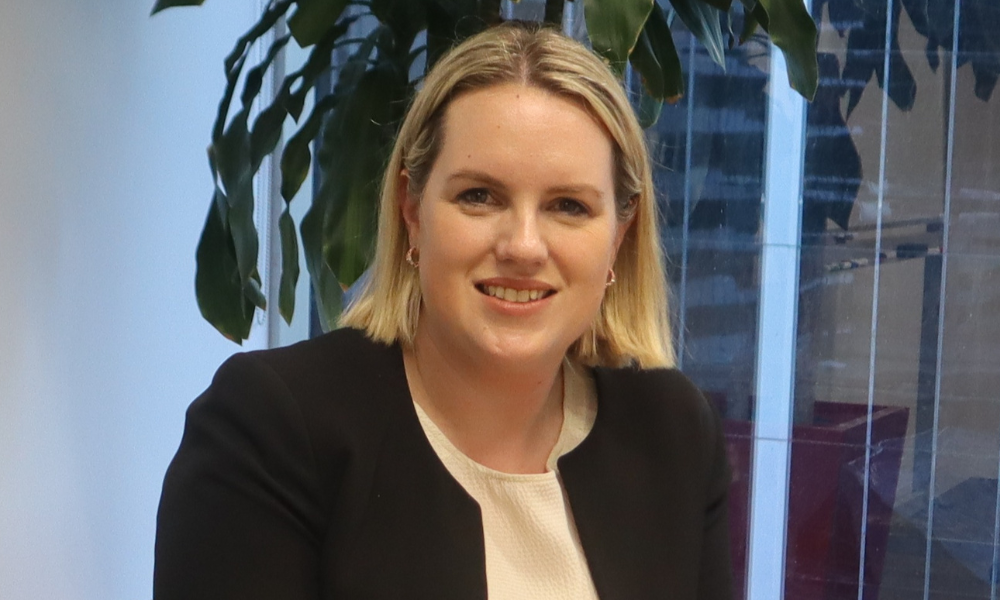
'What people want from their employer is very relevant,' says Alison Scott, chief people officer

For Alison Scott, chief people officer at Systra ANZ, dealing with diversity and a global workforce is all in a day’s work.
The multinational engineering and consulting group is home to over 10,500 employees – with a headquarters in France. For Scott, leading the ANZ arm of the business, her role is to align organisational vision with regional strategic objectives.
"In Australia, our engineering focuses on transport and defense," she explains. As part of the executive leadership team, Scott helps create a midterm plan that charts the company's strategic direction for the next five years. "This plan highlights the key projects and markets we aim to pursue.”
And a pivotal aspect of this strategy is an authentic, top-down commitment to Environmental, Social, and Governance (ESG) goals – something that’s only becoming more and more important to candidates in general.
According to research from Robert Walters, 59% of employees think ESG should be a top workplace priority – however, 71% of workers say their organisation doesn’t have any progressive climate goals in place.
“ESG is at the heart of engineering,” Scott tells HRD. “The old CSR didn't have as much relevance within engineering as more of a corporate type of view, whereas ESG, when it's got more of that sustainability and the outlook of how they impact the environment, makes it more relevant to employees from a people and culture part. I think we play a much broader role in the social and the governance part of the ESG too.”
And, while Scott believes that environmental sustainability is crucial, the social and governance aspects are equally significant.
“We've received feedback through annual and biannual Mercer engagement surveys and our own local surveys," she adds. "What people want from their employer is very relevant."
Systra's approach to diversity and inclusion is another cornerstone of its corporate culture. The company leverages its international expertise to foster a supportive workplace for its diverse workforce.
“We provide a workplace that is supportive for those coming from everywhere," Scott notes. Given the low percentage of women graduating from engineering disciplines in Australia, Systra has formed strategic partnerships with entities like Work180 and Uniq You to support its gender diversity goals.
“We've worked with a lot of universities to support those goals,” Scott tells HRD.
Listening to employees has led to innovative programs, such as neurodiversity support, including the introduction of Lego in the offices – something that is notably rare in workplaces today. According to data from Golden Steps ABA, just 34% of employees with autism report feeling supported at work, with just 16% of adults with autism having worked fulltime for one year or more.
"Engineers who are neurodiverse found that using their hands gave them thinking time," Scott explains. “We've embedded that within the offices - listening to the workforce has been the number one thing here along with our other programs.”
The company's hybrid work model has also adapted to regional preferences – something they’re seeing replicated across the globe in various sectors.
“The hybrid model is used in different ways in different areas," Scott observes. "You need different programs to support those different working habits as well. This year, we've had a lot of focus on increasing commercial acumen and business development. It’s not necessarily hand in hand with engineering technical skills."
Technological advancements, especially in artificial intelligence (AI), are rapidly being integrated into Systra's operations.
"We’re a curious organization, and implementing new technologies and advancements is exciting, AI's no different," Scott says. “We have an in-house AI function, which is, a little like a ChatGPT - but seen as very secure internally.”
“The technology is evolving really, really quickly – we’re encouraging the team to share what they're learning, trying and finding through industry bodies, conferences, LinkedIn, peer networks, and to bring it back and put it on the table that's within the people and culture type of role.”